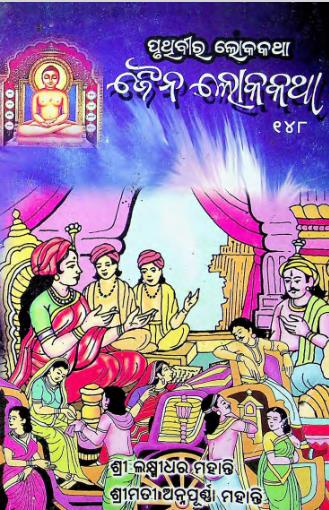Title: Exploring Pruthibir Lokakatha, v. 148 – A Dive into Odia Folktales and Jain Influence
In the realm of Odia literature, Pruthibir Lokakatha, v. 148 translated by Lakshmidhar Mohanty and Annapurna Mohanty in 2013, stands as a significant embodiment of the rich traditions of Odia folktales intertwined with the philosophical teachings of Jainism. This volume encapsulates the intricate narratives that have been passed down through generations, making them not just stories but repositories of cultural wisdom, moral lessons, and insights into human behavior.
Folktales have long been an essential component of Odia culture, serving both as entertainment and a medium for imparting ethical values. Pruthibir Lokakatha translates to Tales of the Earth, indicating a focus on stories that reflect the lives, beliefs, and moral dilemmas of people in different communities. The 148th volume, in particular, features a collection of anecdotes that encapsulate the essence of human experience—love, betrayal, morality, and the nature of existence.
The tales included in this anthology are particularly noteworthy for their Jain influences. Jainism, with its emphasis on non-violence, truth, and asceticism, has played an influential role in shaping the moral fabric of many Odia folktales. The narratives often illustrate the philosophical underpinnings of Jain teachings, promoting virtues such as compassion, self-restraint, and the importance of righteous living. Through engaging stories, readers are invited to reflect on their own lives and the broader implications of their actions.
One of the standout features of Pruthibir Lokakatha, v. 148 is its dual role as a cultural artifact and an educational tool. The translators, Lakshmidhar and Annapurna Mohanty, have done an admirable job of rendering these tales into a language that resonates with contemporary readers while maintaining the authenticity of the original narratives. Their approach ensures that the stories are accessible, preserving the wit, wisdom, and charm of Odia oral traditions.
In addition to the moral and philosophical layers, the tales are set against the rich backdrop of Odisha’s natural beauty and vibrant cultural landscape. Vivid descriptions of rural life, social customs, and the connection between humans and nature add depth to the stories, making them not just narratives but immersive experiences. Readers can almost hear the rustle of leaves, feel the warmth of community gatherings, and sense the philosophical inquiries that emerge in the quiet moments of life.
Moreover, the structure of the folktales often follows a cyclical pattern, highlighting the inevitability of fate and the recurring themes of redemption and transformation. Such storytelling techniques not only enrich the reader’s understanding of the narrative but also solidify the teachings of Jainism within the cultural context of Odisha.
In conclusion, Pruthibir Lokakatha, v. 148 is more than a mere translation of folktales; it is a bridge connecting past and present, tradition and modernity. It invites readers to explore the intricacies of human nature and the enduring lessons of Jainism through a collection that is as enlightening as it is entertaining. This volume serves as a testament to the dynamic spirit of Odia folklore and its continued relevance in contemporary society, making it a must-read for anyone interested in the intersections of culture, philosophy, and storytelling.
Books Info
| Books name | Pruthibir Lokakatha, v.148/ପୃଥିବୀର ଲୋକକଥା |
| Author | Lakshmidhar Mohanty, Annapurna Mohanty, Tr. |
| No Of pages | 226 |
| Publisher | Nila Kantheswara Siksha Prakalpa |
| Publication | 2013 |
| Printed At | Vhhatrasathi Press |
| Distributor | NA |

